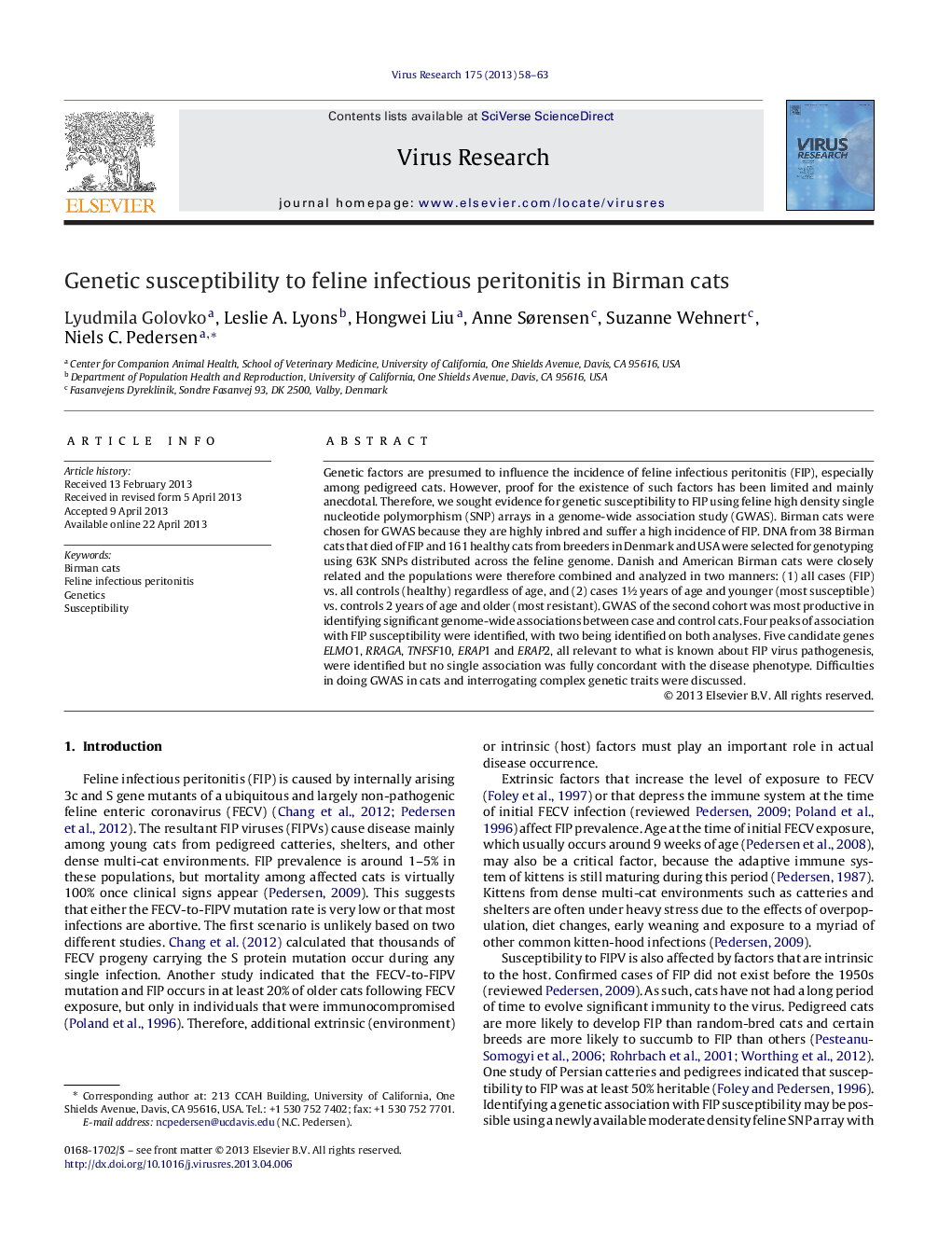| Article ID | Journal | Published Year | Pages | File Type |
|---|---|---|---|---|
| 3428621 | Virus Research | 2013 | 6 Pages |
•Feline infectious peritonitis (FIP) is caused by a mutant enteric coronavirus.•Susceptibility to FIP appears to be heritable in pedigreed cats.•Birman cats suffer a high incidence of FIP and are highly inbred.•Heritable factors were interrogated in Birman cats by genome wide association study.•Five relevant candidate genes were strongly associated with FIP susceptibility.
Genetic factors are presumed to influence the incidence of feline infectious peritonitis (FIP), especially among pedigreed cats. However, proof for the existence of such factors has been limited and mainly anecdotal. Therefore, we sought evidence for genetic susceptibility to FIP using feline high density single nucleotide polymorphism (SNP) arrays in a genome-wide association study (GWAS). Birman cats were chosen for GWAS because they are highly inbred and suffer a high incidence of FIP. DNA from 38 Birman cats that died of FIP and 161 healthy cats from breeders in Denmark and USA were selected for genotyping using 63K SNPs distributed across the feline genome. Danish and American Birman cats were closely related and the populations were therefore combined and analyzed in two manners: (1) all cases (FIP) vs. all controls (healthy) regardless of age, and (2) cases 1½ years of age and younger (most susceptible) vs. controls 2 years of age and older (most resistant). GWAS of the second cohort was most productive in identifying significant genome-wide associations between case and control cats. Four peaks of association with FIP susceptibility were identified, with two being identified on both analyses. Five candidate genes ELMO1, RRAGA, TNFSF10, ERAP1 and ERAP2, all relevant to what is known about FIP virus pathogenesis, were identified but no single association was fully concordant with the disease phenotype. Difficulties in doing GWAS in cats and interrogating complex genetic traits were discussed.
